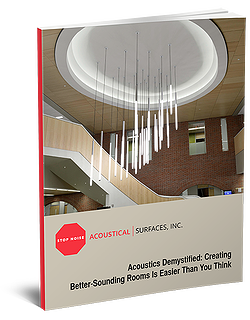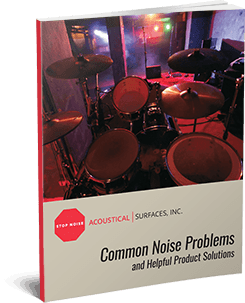Ask the Experts: How Soundproof Are Hotel Rooms?
When we check into a hotel room, we’re often excited about a little peace and quiet. A peaceful respite from a busy day of travel or visiting with friends and family is a great thing. At other times, we may want to invite some of them up to the room for a little late night hangout. Whatever our aims, a soundproof hotel room is key to achieving the experience we want. But how soundproof are hotel rooms, really?
Whether we seek a quiet space to get some solid rest or a place to entertain, sound control is essential. Unfortunately, not all hotel rooms are created equally. Let’s take a look at how hotels handle noise control and how to tell if yours is up to par. We’ll also cover a few simple things you can do to improve your experience if you find yourself in a hotel with noise issues.
How soundproof are hotel rooms?
First, we’ll tackle the question of the day. How soundproof are hotel rooms? The short answer is that it really depends on where you stay. Each hotel will be different, but there are some general rules of thumb you can go by for a decent indication.
If you’re staying in a relatively modern hotel, there are building codes in place to keep sound under control. Modern hotels likely had to abide by them. When contractors build structures that will house a lot of people, they take great care to ensure that no one has to put up with noisy neighbors. Still, some hotels take it a step further to ensure guests have a peaceful night’s sleep. Most modern hotels will be somewhat soundproof, but there will be a range.
If you prefer to stay in historic buildings, you may have less soundproof hotel rooms than you would in modern structures. Older buildings generally weren’t built with the thick walls or properly soundproofed doors, windows, and walls newer hotels have. Again, there will be a range, but you can expect a little more sound passage in older structures. It all comes down to what they’ve done to improve their soundproofing.
There are good reasons for hotels to soundproof their rooms. Hotel chains with soundproof rooms deliver a more comfortable stay for guests, and may even be able to charge more for that luxury. It’s a great point of emphasis. Here’s how they do it.
How Hotels Soundproof Rooms
Now that we’ve answered the question, how soundproof are hotel rooms, it’s time to dig into how to soundproof a hotel room. There are a number of ways high end hotels keep their rooms quiet for their guests. The most effective way to soundproof a room is by decoupling the connecting walls. That removes the passageways that sound waves would otherwise use to traverse the wall.
Since decoupling gets expensive very quickly in a hotel with many rooms, most use different measures. Some you will be able to see, and some you won’t. We’ll look both at how hotels soundproof rooms, and how to tell what hotels have soundproof rooms and what hotels don’t.
The Walls
Since the walls are the largest surface connecting you to the outside world and guests next door, it’s important that they keep sounds on their respective sides. You’ll want walls with sufficient mass and density to prevent vibrational energy from traversing the barrier.
One method of soundproofing hotel rooms is adding acoustical insulation. It’s a very similar product to standard thermal insulation, but it pulls double duty and absorbs sound energy as well as thermal energy. Filling the wall cavities with soundproof insulation will make any space more serene. If your hotel utilizes it, you’ve got a leg up.
Another way hotels beef up these barriers is by adding mass and density on the surface. This is often accomplished by placing mass loaded vinyl (MLV) or green glue to the drywall. Each can be applied on either side of the drywall, and if it’s on both, that’s even better. You won’t see it, though, since both materials are almost always covered with another sheet of drywall or other building material, which adds additional mass. Those layers of MLV or green glue sandwiched between surfaces prevent vibrations from reaching the next surface and will keep the rooms quieter as a result.
How soundproof are hotel rooms with added mass and density in the walls?
How Heavy are the Doors?
When you first walk into the room, take note of the door. Since doorways are a big contributor to unwanted noise, a solid door will do you a world of good. The heavier and thicker the door, the more sound they will keep at bay. Again, it comes down to mass and density.
The more mass and density the walls and doors have, the better they are at preventing sound passage. A thick, heavy door will keep the room much quieter than one lacking in weight and thickness. In addition to the weight of the door, you’ll want to check the gaps around it.
If you’ve got large gaps around the perimeter of the door, they will allow sound to pass through like the door wasn’t even there. A well-sealed door, however, will allow you to enjoy your peace and quiet without being disturbed every time someone walks by.
So, how soundproof are hotel rooms with upgraded doors?
What do the Windows Look Like?
Like doors, windows can leak a lot of sound. If the hotel is on a busy road in the city, the windows could be the difference between a sleepless night and a sound snooze. You’ll want to observe the number of panes it’s got, as well as how well it’s sealed.
The more panes a window has, the more able it is to block sounds. There are two main reasons for this. First, each pane acts as another surface sound waves must pass through to reach your room. Each pane also creates another air or gas-filled gap that prevents sound waves from efficiently reaching the next pane. Multi-paned windows are also fantastic at preventing drafts, meaning the temperature will be as comfortable as the ambient sound.
Like doors, gaps around windows can let in a lot of sound. Most high end hotels will use an acoustical caulk to keep both noise and extreme temperatures at bay. It stays flexible after it dries, allowing it to last much longer. If you don’t see any caulking or see cracked and broken caulking, you may be in for a noisy night.
Acoustical Curtains
An innovative way hotels keep sound from coming in the windows is by using acoustical curtains. Each room needs curtains anyway, so why not get added benefit from them? Acoustical curtains work just like regular curtains, but they are incredibly absorptive. They will soak up a good deal of the sound that makes its way into the room, and they’re very effective at blocking light as well. If you see acoustical curtains in your hotel room, you know they’ve paid attention to the details that matter.
Window Inserts
Another way hotels keep sounds from seeping through the windows is with inserts. They are especially prevalent in historic buildings. Window inserts allow those historic buildings to keep their vintage windows but deliver the benefits of new windows. They fit snugly into the opening to create the second pane and air gap we’re all after, while maintaining the character of the original windows. They work well on any window but are particularly popular when we want to retain a vintage look.
Acoustic Treatments
While not technically soundproofing measures, acoustic treatments are integral parts of proper soundproofing. That’s because they reduce the volume of the sounds in the rooms and hallways, making it easier for soundproofing measures to perform at high levels. Here’s why.
Acoustic treatments involve any number of soft, absorbent materials that are made to trap sound waves. Sound waves reflect off hard surfaces, filling the room with echoes and reverberation. As more sounds are introduced, the volume only grows. Hotels utilize acoustical treatments to trap those sounds to prevent them from getting too loud. You’ll be less likely to ask the question, how soundproof are hotel rooms, if less noise is being produced.
The most common types of acoustical treatments used in hotels are decorative panels. They are available in a number of different materials and finishes, so hoteliers can use them to accent any interior design scheme.
Choosing Quiet Spaces
Even soundproof hotels have areas that cause acoustical issues. Learning how to avoid them will get you the quietest room available. Take these tips into consideration next time you book, and you may considerably increase the quality of your stay.
Steer Clear of Stairs and Machines
Two of the biggest noisemakers in any hotel hallway are going to be the vending machines and stairwells. People gather at the machines and nearly everything drops out of them with a thud. When it comes to the ice machines, they can be even more noisy. If the hotel only has a machine on every other floor, you can see as many as three floors worth of guests filling their buckets. That’s a lot of clinking and clanking.
Stairwells can be equally noisy. When heavy-footed groups scale the stairs to their rooms, they can create a ton of noise. Plus, stairwells can echo. That means even quiet conversations and footfalls can become booming disruptions. Requesting rooms that are far from stairwells and the vending machine and ice banks can contribute to a quieter stay.
Avoid Adjoining Rooms
Adjoining rooms are great if you’re traveling in a group, but can be less than ideal when you don’t know the guests on the other side. That pair of doors that connects the rooms can act as a weak spot, allowing excess noise into your room. If you don’t need adjoining rooms, request that you don’t stay in one.
Ask to Move
If you find you’re not in a hotel with soundproof rooms, you’ll want a solution quickly. Let’s say you’re camped next to a noisy group. A simple solution is to ask the front desk to move you to another room. It may be an inconvenience to move, but you may get an upgrade or a discount for your trouble.
Taking Matters into Your Own Hands
If you’re up to the task, there are some simple things you can do to improve the sound control in your hotel rooms. You won’t be able to completely soundproof your room, but you can block some of the easier passages and absorb some of the sounds before they reach any ears.
Block the Gap at the Bottom of the Door
One place where sound can easily pass in and out of hotel rooms is the gap underneath the door. Since a fair amount of noise complaints involve hallway noise, this is an important place to work on. Most hotel rooms have pretty solid doors, which is a good start, but with nothing blocking the gap at the bottom, you may as well have a cheap door. Luckily, there’s a simple solution.
If you’ve got room in your luggage, bringing a draft blocker can help a fair amount. Draft blockers introduce a soft, absorbent material to each side of the gap. They’re designed to stop drafts, but they can definitely help reduce the amount of noise passage as well. They don’t take up much space and don’t weigh a lot, so bringing them is usually a minor inconvenience. If you wake up to a hallway party, you’ll be glad you brought it. If you plan to entertain, it may save you from a noise complaint.
Pack Ear Plugs
When all else fails, having a set of decent earplugs in your luggage can help you make it through the night. It’s not the most ideal situation, but it’s better than lying awake all night. If it comes to this, let the hotel know. They will likely do something to compensate you.
How Soundproof are Hotel Rooms: The Takeaway
We all like our hotel stays to be as tranquil as possible. That’s what causes us to ask, how soundproof are hotel rooms, in the first place. Luckily, practicing what you’ve learned will help you identify the hotels that take sound seriously, as well as those that don’t.
If you find yourself in a noisy room, you’ve even got a few tricks that can help you get a decent night’s sleep. When you check out in the morning, make sure to let them know how they could improve. You’ll likely know exactly what was lacking.



